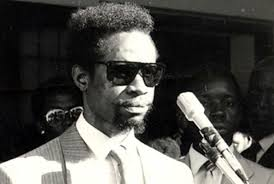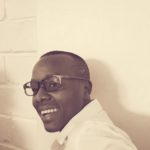The Uganda Aids Commission, Civil society and advocacy groups have reflected on the late Philly Bongole Lutaaya’s life.
Lutaaya was the first prominent Ugandan to give a human face to HIV/AIDS. He was the first Ugandan to declare that he was HIV positive in 1988. Prior to his death in December 1989, he spent his remaining time writing songs about his battle against HIV/Aids, releasing his last album Alone and Frightened.
Currently, there are 1.5 million people living with HIV/Aids in Uganda. At least 1.3 million know their HIV status while 1.2 million are on treatment.
Dr. Nelson Musoba, the Director General of the Uganda Aids Commission (UAC) said HIV disclosure is not an easy thing. It is complicated. It has implications, not just for you disclosing, but for the people around you. Your family, spouse, and children but Philly did it at the time when the country itself was still in bondage.
He said at that time no one wanted to be associated with HIV/Aids whose diagnosis was a death sentence.
“Philly could have chosen to stay quiet do his final days. But he chose to come and share his final moments with the Ugandans with the young people. And for me, that is a powerful inspirational story. He is under-celebrated,” he said.
“UNAIDS together with all the countries agreed to end HIV/Aids by 2030. We want to record zero new infections, Zero AIDS-related deaths, because science exists for you not to pass on the infection, either to the baby or your sexual partner. Currently, infections through blood transfusion are almost nil,” he said.
“Through science, if you take your medication, you can achieve undetectable viral load. What you’re going to be tomorrow in your older age, you are sewing it now. It is about lifestyle. It is about what you eat and drink,” he said.
He said science exists but there is no cure and vaccine however the existing medication suppresses the virus and one can live a near-normal life.
Adeken Ndyeri who represented Paulina Chiwangu, the Country Representative of the UN Women in Uganda said by ending violence against women, women’s access to services, and social norms, we will be able to get to the core of stigma and discrimination, and the fight against HIV.
“This year’s theme for the joint Aids assembly speaks to the importance of tackling multi-dimensional stigma and discrimination and inequalities among young women, adolescent girls, and boys. And this is no doubt core to addressing all vulnerabilities stigma and discrimination risk that women or men face on many fronts,” she said.
UN Women has invested technically technical expertise and funding in programs such as this that intentionally tackle the fear and the desperation on a personal level through mobilizing networks and educating young people living with HIV and using them and working together with them to address issues at the community level.
She said the organization is keen to continue to support the meaningful engagement of young people and adolescent girls and young women across initiatives and gender equality, programming and empowerment, knowing that the youth, especially adolescent girls, and young women are at the epicenter of transmission of HIV not only in Uganda but across the world.
Aloysius Matovu Joy who has lived with HIV/Aids for over 30 years said; “Crying is in the past. We shall never cry again. Weeping is already bypassed, we no longer regret his past, nothing more to regret about. We no longer lament, lamenting is overpassed nothing to lament about.”
“We will raise Philly Bongole Lutaaya’s banner higher than the highest peak of Everest, paraphrasing your solitary quietly from a lone wolf in the wilderness in solitude and fright. We are not alone. We are not frightened anymore,” he said.
He said Lutaaya is a mighty warrior and the Spirit deep within them, keeps them fighting against HIV/ Aids. He asked the Lutaaya to be declared a saint.
Activist Beatrice Was said she was at Makerere University in her second year when Philly opened up and she believed that he was lying because he was looking pretty good not until she contracted the virus. She said the next she returned to the University he was the wasted man he was dying.
“So by 1991, I had known that I was HIV positive. So it was the year he had died the previous year. So looking at him recalling and looking at my journey, he was a man of courage. He was elite and courageous. And I regret having doubted him. I wish I listened,” she said.
She said during the 1980s and 1990s, there was a lot of ignorance, and there was no information. There was a lot of exploitation, and people took advantage of them (Women).
In a bid to intensify the fight against HIV/Aids, Beatrice called for addressing gender-based violence and re-introduce HIV/Aid counseling services.
Grace Nayiga, the Acting Executive Director of Uganda Network on Law, Ethics and HIV/AIDS (UGANET) said; “We are celebrating Philly Lutaaya’s strength and I can imagine in the 1990s what it meant to come out and talk about being HIV positive, it must have been different, and it must have been had.”
“We thought that it would be important to celebrate the people that have walked with courage. The people that have worked with determination, the people that have moved out in their community broken their shells in advocating to end stigma and discrimination,” she said.
In tandem, Deborah Leticia Akumu, Nawanyaga Gloria, Maj. Rubaramira Ruranga, Ruth Awor, Kwagala Betty Babirye, Michael Ssenyonjo and Moses Super Charger were accorded Philly Bongole Lutaaya Award for their distinguished fights against HIV/Aids.








